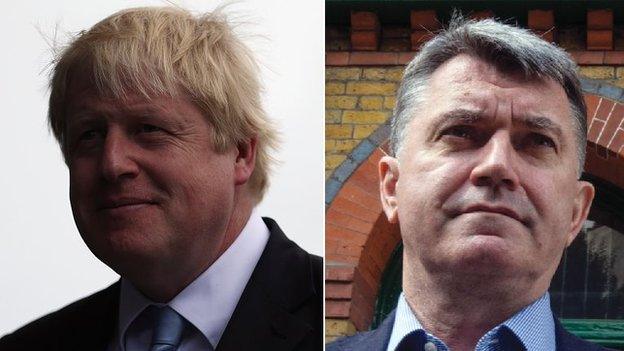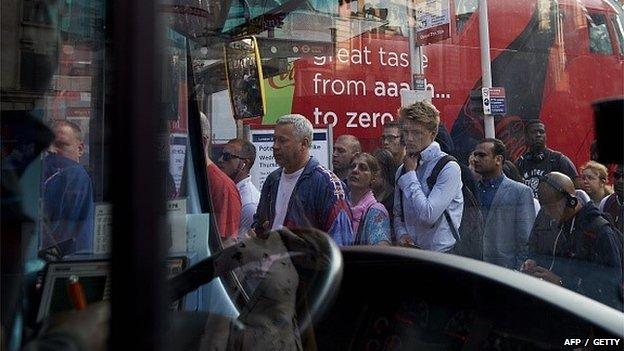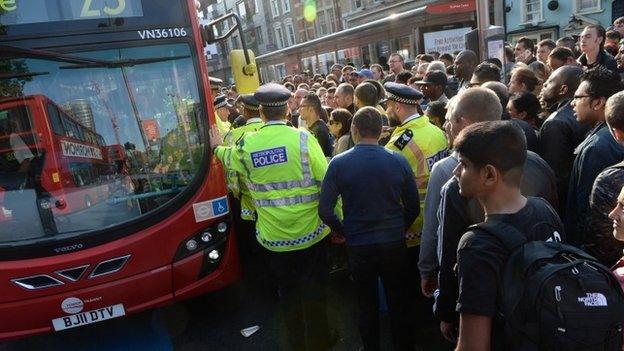Tube strike: No beer and sandwiches
- Published

Boris Johnson and Mick Cash of the RMT, one of the unions embroiled in the row
With London's Tube network set for a 24-hour shutdown for the second time in a month, critics say Boris Johnson should be building bridges with the unions - but the days of resolving disputes while enjoying light refreshments appear to be over.
We are not in a time of beer and sandwiches. This is not the 1970s, when union barons and politicians shared snacks and hard talk at Number 10.
In fact, these days the capital's union leaders can't even get their feet through the front door at City Hall.
Since becoming mayor, Boris Johnson hasn't held talks with those who run London's transport unions despite numerous strikes. The only time he talked to Bob Crow, the former leader of the RMT, was when Mr Crow called in to a radio show the mayor was on.
Critics say the mayor should play more of a role in building bridges, but the mayor says it's for his team at Transport for London to do the talking.
But it's hard to split the politics from the process. Remember the root cause of this dispute: the mayor's ambition to run tubes through the night on Fridays and Saturdays.

Last month's strike would have gone ahead even under changes proposed by the government
It was a decision announced on the very day he revealed that TfL was to close its ticket offices (before becoming mayor he'd promised that none would shut under a Johnson administration).
As the unions went on strike over that decision, the mayor was happy to call for a change in the threshold for strike ballots - one that required the unions to get higher turnouts and higher majorities before they took action.
It is a call that has been heeded in Westminster.
The new government's Trade Union Bill will require a 50% threshold for ballot turnout and in key areas, like health, education and transport, require 40% support from all eligible members for action to go ahead.
Interestingly, the current strikes would still have gone ahead even if that legislation had been in place since both turnout and support are well above the government's suggested levels.
So where are we now with the current dispute?
Despite weeks of talks the two sides remain some way apart.
From the sidelines, the mayor has accused the unions of "playing politics" and, from the frontline, the unions have accused the mayor of - you guessed it - "playing politics".
At least there's one thing they agree on.
- Published5 August 2015
